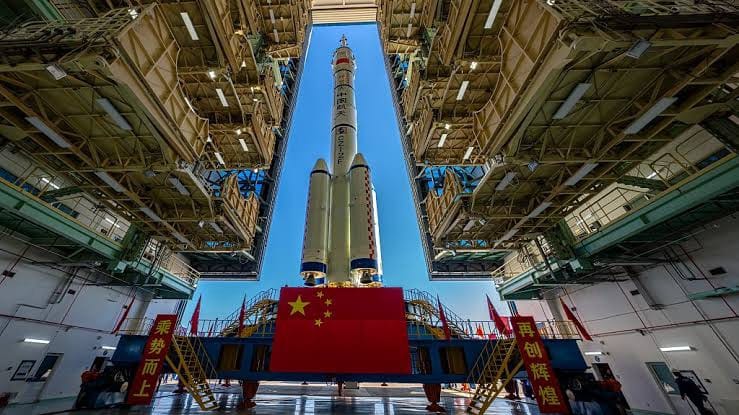China to launch new crew in Shenzhou-19 to space station
China has announced its plan tolaunch its latest crewed mission to the Tiangong space station early Wednesday, signaling a new chapter in its ambitious space program.

China has announced its plan tolaunch its latest crewed mission to the Tiangong space station early Wednesday, signaling a new chapter in its ambitious space program. The Shenzhou-19 spacecraft is scheduled to lift off from the Jiuquan Satellite Launch Center at 4:27 a.m. local time, carrying a crew of three astronauts—two men and one woman—who will replace the current team aboard the station.
Leading the mission is seasoned astronaut Cai Xuzhe, a veteran of the Shenzhou-14 mission in 2022. He is joined by first-time space travelers Song Lingdong, an ex-air force pilot, and Wang Haoze, an engineer with the China Aerospace Science and Technology Corporation, who will serve as the payload specialist. Notably, Wang will become the third Chinese woman to participate in a crewed space mission. At a press conference on Tuesday, the trio, appearing behind protective glass, expressed their commitment to advancing scientific projects and “bringing pride to the fatherland.”

The Shenzhou-19 mission will launch atop a Long March-2F rocket, a cornerstone of China’s crewed space endeavors. Lin Xiqiang, spokesperson for the China National Space Administration, confirmed the mission details, highlighting the importance of this endeavor amid rising international competition in space exploration.
China’s strategic move to establish its own space station, Tiangong, follows its exclusion from the International Space Station due to U.S. security concerns. The Chinese space agency has made significant strides, including landing a rover on Mars and planning to send astronauts to the moon by 2030, positioning itself as a key player in global space exploration. If successful, China would become the second country to achieve a crewed lunar landing, following the U.S.
As part of this mission, the new crew will stay on Tiangong for six months, conducting scientific experiments, installing protective measures against space debris, and performing spacewalks to upgrade the station. They will also engage in public outreach and collaborate on recycling equipment during their tenure in orbit.
The growing capabilities of China’s space program have raised concerns in the U.S., particularly regarding space debris. NASA has previously criticized China’s actions, such as the 2007 missile strike on a defunct satellite that created significant orbital debris. With the mission set to conclude in late April or early May 2025, Lin emphasized that contingency plans are in place for an earlier return if necessary.
Looking forward, China aims to expand its international partnerships in space exploration, with discussions underway to train and transport astronauts to Tiangong. As China continues to develop its space program, the successful launch of Shenzhou-19 will further solidify its position on the world stage, driving a new era of exploration and technological advancement.














